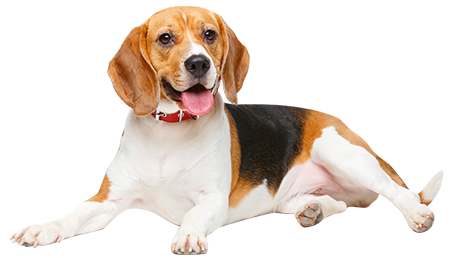The Essential Guide to Animal Protein in Dog Food: What Every Pet Owner Should Know
When it comes to ensuring the health and vitality of your canine companion, understanding the significance of animal protein in dog food is essential. Dogs are classified as omnivores, but they thrive on a diet that includes a substantial amount of animal-derived proteins. These proteins are vital for various bodily functions, including growth, maintenance of muscle mass, and overall energy levels
2024/12/30
When it comes to ensuring the health and vitality of your canine companion, understanding the significance of animal protein in dog food is essential. Dogs are classified as omnivores, but they thrive on a diet that includes a substantial amount of animal-derived proteins. These proteins are vital for various bodily functions, including growth, maintenance of muscle mass, and overall energy levels.
Animal protein serves as a primary source of amino acids, which are the building blocks of life. Unlike plant-based proteins, animal proteins typically contain all of the essential amino acids that dogs need for optimal health. Essential amino acids cannot be synthesized by the body and must be obtained through diet, making protein from animal sources indispensable for your dog’s well-being.
High-quality animal protein in dog food can come from various sources, including meat, fish, and poultry. Each of these protein sources provides unique nutritional benefits. For instance, chicken and beef are rich in amino acids and are often favored by dogs. Fish, on the other hand, not only delivers protein but also provides omega-3 fatty acids, which are beneficial for a dog’s skin and coat health. These healthy fats can help reduce inflammation and promote a shiny, healthy coat.
When selecting a dog food that contains animal protein, it’s essential to look for products that list specific meat sources rather than generic terms like "meat meal" or "meat by-products." Foods that specify sources such as "chicken meal" or "salmon" indicate higher quality and more digestible protein. This specificity ensures that your dog is receiving the nutrition they need without unnecessary fillers.
It's also worth noting that the quantity of animal protein in your dog's diet should be balanced with other nutrients like carbohydrates, fats, vitamins, and minerals. A complete and balanced diet is crucial for your dog's health, and while animal protein is a key component, it should be part of a well-rounded nutritional profile.
In conclusion, animal protein plays a vital role in dog food, providing essential amino acids and supporting overall health. When choosing the right food for your furry friend, prioritize options that contain high-quality animal protein as a primary ingredient. This will not only help maintain their energy levels but also contribute to their longevity and quality of life. Always consult with your veterinarian to determine the best dietary plan tailored to your dog's specific needs.
Animal protein serves as a primary source of amino acids, which are the building blocks of life. Unlike plant-based proteins, animal proteins typically contain all of the essential amino acids that dogs need for optimal health. Essential amino acids cannot be synthesized by the body and must be obtained through diet, making protein from animal sources indispensable for your dog’s well-being.
High-quality animal protein in dog food can come from various sources, including meat, fish, and poultry. Each of these protein sources provides unique nutritional benefits. For instance, chicken and beef are rich in amino acids and are often favored by dogs. Fish, on the other hand, not only delivers protein but also provides omega-3 fatty acids, which are beneficial for a dog’s skin and coat health. These healthy fats can help reduce inflammation and promote a shiny, healthy coat.
When selecting a dog food that contains animal protein, it’s essential to look for products that list specific meat sources rather than generic terms like "meat meal" or "meat by-products." Foods that specify sources such as "chicken meal" or "salmon" indicate higher quality and more digestible protein. This specificity ensures that your dog is receiving the nutrition they need without unnecessary fillers.
It's also worth noting that the quantity of animal protein in your dog's diet should be balanced with other nutrients like carbohydrates, fats, vitamins, and minerals. A complete and balanced diet is crucial for your dog's health, and while animal protein is a key component, it should be part of a well-rounded nutritional profile.
In conclusion, animal protein plays a vital role in dog food, providing essential amino acids and supporting overall health. When choosing the right food for your furry friend, prioritize options that contain high-quality animal protein as a primary ingredient. This will not only help maintain their energy levels but also contribute to their longevity and quality of life. Always consult with your veterinarian to determine the best dietary plan tailored to your dog's specific needs.
Key words:
Previous Page:
Contact Us
Address:
No. 22, Jingxing Road, Economic and Technological Development Zone, Nantong, Jiangsu Province.
E-mail:
panghuiqiang@metzpet.com
Contact Phone:
+86-18862996617














